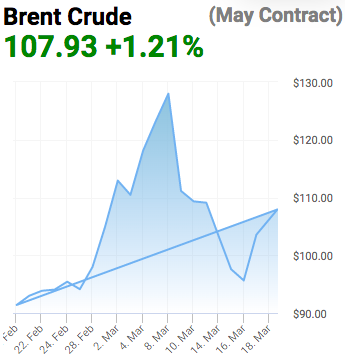IEA: No cars on Sundays and fewer business flights could cut global dependence on Russian oil

Car-free cities on Sundays, working from home three days a week, and avoiding business flights are among the dramatic measures called for by the International Energy Agency (IEA) to reduce the world’s reliance on Russian oil this winter.
Following Russia’s invasion of Ukraine, the organisation published a ten-point plan last Friday to help the global economy wean itself off Kremlin-backed fossil fuels.
It calculates that the full strategy – which focuses on energy efficiency and reducing consumption – would cut worldwide oil demand by 2.7m barrels a day within four months, equivalent to more than half of Russia’s exports.
IEA executive director Fatih Birol has warned the “world may well be facing its biggest oil supply shock in decades” with “huge implications” for economies and societies amid continued fears over shortages and disruption.
He said: “IEA member countries have already stepped in to support the global economy with an initial release of millions of barrels of emergency oil stocks, but we can also take action on demand to avoid the risk of a crippling oil crunch.”
Earlier this month, the organisation also highlighted the prospect of supply shortages between the second and fourth quarter this year – with potentially three million barrels a day of Russian oil shut out of global markets.
The supply loss would be far greater than the expected drop in demand of one million barrels per day triggered by higher fuel prices – with prices on both benchmarks remaining elevated about $100 per barrel.
Alongside the most eye-catching pledges, the IEA has also called for 10km per hour reductions in national speed limits, cheaper public transport, increased car sharing, more high-speed night trains and further support for electric cars.

Cutting demand crucial to reducing reliance on Russia
Regardless of the practicality of the proposals, the IEA’s ten point list reflects a growing consensus that behavioural changes in the West will be required to reduce consumption – alongside the pursuit of alternative energy suppliers – in order to keep costs down and reduce the possibility of blackouts.
Last week, Europe think tank Bruegel called on governments to “encourage demand reduction” – particularly within the transport sector.
It also suggested Europe and the US should form a Trans-Atlantic Energy Pact to make spare capacities in the US available to replace lost Russian volumes.
UBS has further suggested in a separate study on European gas dependence that cutting demand is key to lowering Russian supplies into the continent.
On a more curious note, last October, a government research paper that pushed for the stigmatisation of international business flights and the promotion of domestic tourism was hastily deleted.
The report focused on changing public behaviour to reach net zero climate targets.
Currently, the EU relies on Russia for 50 per cent of its coal, 40 per cent of its natural gas and around 30 per cent of its oil supplies.
So far, the trading bloc has not joined the UK and US in imposing energy sanctions on Russia – with the EU spending €5.8bn on Russian oil since the country invaded Ukraine last month, according to research group CREA.
While the US and UK have lost a combined 900,000 barrels per day following the announced energy sanctions, the EU still takes in 2.8m barrels per day of Kremlin-backed oil supplies.
Closer to home, Utilita Energy chief executive Bill Bullen has called for the UK government to bring in plans to reduce energy consumption as the country divests from Russian supplies amid skyrocketing wholesale prices.
Bullen criticised the latest column from Prime Minister Boris Johnson outlining the country’s energy strategy for failing to encourage reductions in consumption demand.
He told City A.M.: “There’s no doubt that renewables must play a major part in the UK’s fuel security, but what the Prime Minister’s comments fail to acknowledge – yet again – is the big green elephant in the room – energy efficiency.”
Last August, Utilita submitted a white paper to BEIS – outlining plans to reduce household energy use by 20 per cent through insulation, lowering thermostats and reducing energy usage in key periods of the day.
Meanwhile, millions of UK households could be offered tariffs on their energy bills with prices that update every half hour.
The option – which could be brought in by 2025 – will see people paying more during peak times and less at quieter times throughout the year .
Three of the country’s largest energy providers – EDF, Octopus Energy and Scottish Power – are backing the plans.